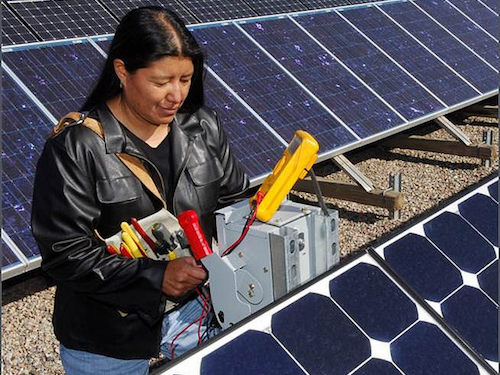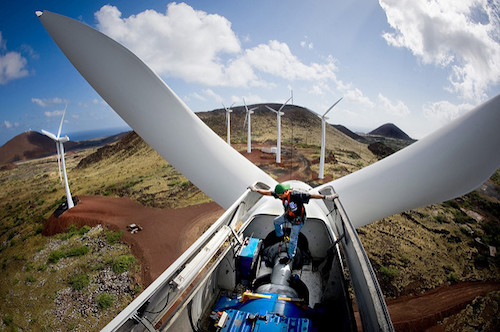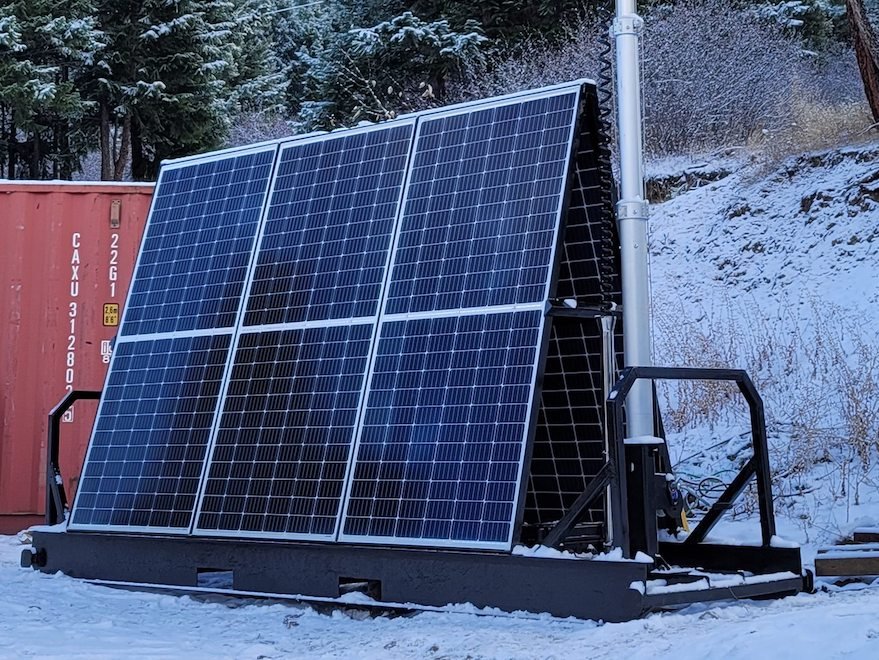Success on Climate Change Means Connecting Outside “The Bubble”
Repeating the same climate messaging to people who already agree with us can only move climate action along so far. Mitchell Beer at Energy Mix Productions explains how we can change the way we communicate with the public about decarbonization.
If we plan to win the battle of our lifetimes and get climate change under control, we must do a better job of reaching outside the “bubble” of people already concerned about the problem.
It is deeply counter-intuitive to suggest we slow down and listen when we know the climate emergency demands an immediate, overwhelming response—like stopping to hear about a neighbour’s leaky roof while your house is on fire.
But we have to shift and broaden the way we tell the climate change story and listen to how it connects for people whose interests and priorities are elsewhere. Otherwise, we will continue winning most of the arguments and losing too many of the decisions on how fast we decarbonize, decrease fossil fuel production, and reap the rewards of a truly green economy without leaving anyone behind.
For decades, advocates have fought fiercely and well to get climate change onto the agenda for policy-makers and the wider public, pushing against multi-million-dollar climate denial campaigns funded by some of the world’s biggest carbon polluters. The advocacy has worked. But only to a point.

We still do not have the widespread, consistent public understanding and insistent voter demand to drive down global emissions at the pace the science demands—45 to 50% by 2030, 100% by 2050. And certainly not to push the world’s richest countries, including Canada, to deliver their fair share of those emission cuts by pushing even farther, even faster.
If talking about climate impacts and emission cuts head-on were going to build the critical mass we need to stop this global emergency in its tracks, it already would have. We need a new plan.
We can still cover more ground by helping people discover how climate action delivers the things they already know they need and want, faster and better.
Mitchell Beer
Rewriting the Playbook
We think we know what to do when an urgent issue demands an immediate response. We write policy, then lobby like mad. We distill longer studies into shorter fact sheets, then collapse those fact sheets into tweets and TikTok videos.
But we are lecturing, not listening. And it is not working. Greenhouse gas emissions are still rising, not falling rapidly as we need them to.
That is partly because we are missing some of our strongest arguments.
Anyone who works in this space knows that climate solutions done right are about opportunity and gain, not loss and pain. There are costs and impacts along the renewable energy delivery chain that we have to anticipate and address. But we still know that rapid decarbonization is the pathway that delivers tens of millions of jobs, massive economic activity, healthier communities, cleaner air and water, and so much more.

And yet, too often, that is not the way we tell the story. Out of a very obvious, necessary sense of urgency, we lead with the latest climate-induced crisis. Then, too often, we either fall into or fail to directly counter the misleading narrative that faster, deeper carbon cuts are mandatory, but they are going to hurt.
Then we wonder why people are so susceptible to the claim that climate action is something that is being done to them, rather than a last-ditch response to a global crisis that is reshaping our lives in real time. Or that we cannot decarbonize or phase out fossil fuels in the midst of punishing inflation, when fossil energy costs are largely driving inflation and energy efficiency is the quickest, best way to get those costs under control.
Here are some lines of thought that can help flip the script.
- If a family is struggling to make ends meet, will they want to hear about a mass, deep energy retrofit program because it drives down emissions, or because it means they will never again have to choose between food and fuel?
- If a suburban commuter has to spend two hours each way, each day in gridlocked traffic, should they work from home for a couple of days each week to cut their tailpipe emissions, or to put hundreds of hours back into their life each year?
- If a parent is sick of the fear and uncertainty of bringing their young daughter to the emergency ward with yet another asthma attack, will they get behind a coal phaseout because it supports Canada’s commitments under the Paris Climate Accord, or because it cleanses the air and lets their baby breathe?
- If a farm producer is struggling with skyrocketing input costs and higher interest rates, will they want to reduce their dependence on nitrogen fertilizer because its byproduct is a climate super-pollutant, or to stay in business?
Each of these questions points to an essential call for climate action, without using any of the usual “c-words” like climate, carbon, or crisis.
Detoxifying the Conversation
It can’t only be about the solutions, not when one-third of Pakistan was so recently under water, with Atlantic Canada picking up the pieces from Hurricane Fiona and memories of 2021’s killer heat dome and floods still fresh in British Columbia. But many of the audiences that shape public opinion on climate are either unmoved by or actively hostile to crisis messaging—and when people take that messaging seriously, it is increasingly likely to drive paralysing despair rather than climate action.
Talking about what is in it for each of us and all of us in making this transition can help detoxify the public conversation on climate action, helping more people see themselves in a realistic picture of a decarbonized future. If we slow down just enough to listen to and connect with those wider public audiences, we might find we can move farther and faster on the climate emergency and all the other issues that keep the Clean50 community up at night.

Decades ago, I heard a community advocate in a similarly contentious field of interest urge his colleagues and adversaries to “open up all the doors and windows, to err on the side of having too many friends and not enough enemies.” There are obvious limits to that principle—there is no room for climate denial or the other assorted conspiracy theories with which it often intersects, and we do not have time for greenwash. But we can still cover more ground by helping people discover how climate action delivers the things they already know they need and want, faster and better.














